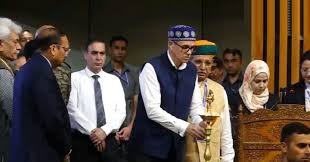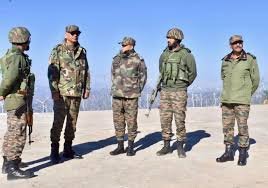Srinagar, July 26, 2025: Jammu and Kashmir Chief Minister Omar Abdullah on Saturday said that the true test of India’s legal system lies in how it treats its most vulnerable citizens — including defence personnel and tribal communities.
Addressing a two-day North Zone Regional Conference at SKICC on reaffirming the constitutional vision of justice, Abdullah reiterated his government’s commitment to strengthening access to justice for the marginalised. “Those who have defended the Constitution and those still awaiting its full embrace deserve more than rhetoric — they deserve real, responsive justice,” he said.
Support for Defence Personnel
On Kargil Vijay Diwas, the CM paid homage to fallen soldiers, highlighting their sacrifices in inhospitable terrains. He noted that serving personnel often face unique legal challenges due to remote postings and military restrictions, which must be recognised under Article 39A of the Constitution.
“It’s indefensible that those who risk their lives to uphold the Constitution struggle to access its protections,” Abdullah stated, calling for:
-
Legal aid clinics in cantonments
-
Better coordination among legal aid bodies, Sainik Boards, and regimental offices
-
Paralegal volunteers trained in military law
-
Use of technology like mobile apps and virtual platforms for legal help
He stressed that “justice must not only be available — it must be accessible.”
Justice for Tribal Communities
Turning to tribal communities, Abdullah acknowledged their vital role as cultural and ecological custodians and called for justice delivery in their own languages and contexts. He urged:
-
Training paralegals from within tribal communities
-
Legal support that respects local idioms and customs
-
Legal aid reaching every remote hamlet across Jammu and Kashmir
He also underlined the need to balance national security with tribal rights, especially in border regions with high security oversight.
Key Institutional Reforms
Abdullah announced that his government has sanctioned the establishment of a dedicated law university with an initial grant of ₹50 crore. This institution will focus on:
-
Tribal rights
-
Constitutional law
-
Military justice
-
Environmental governance
Describing it as an investment for the future, the CM said the law university would serve as a hub for legal education, research, and policy innovation.
“Inclusive justice is the foundation of real democracy. We must act with humility, urgency, and resolve to ensure no soldier or tribal citizen is left behind,” he concluded.



















